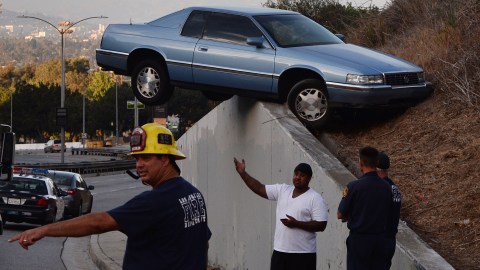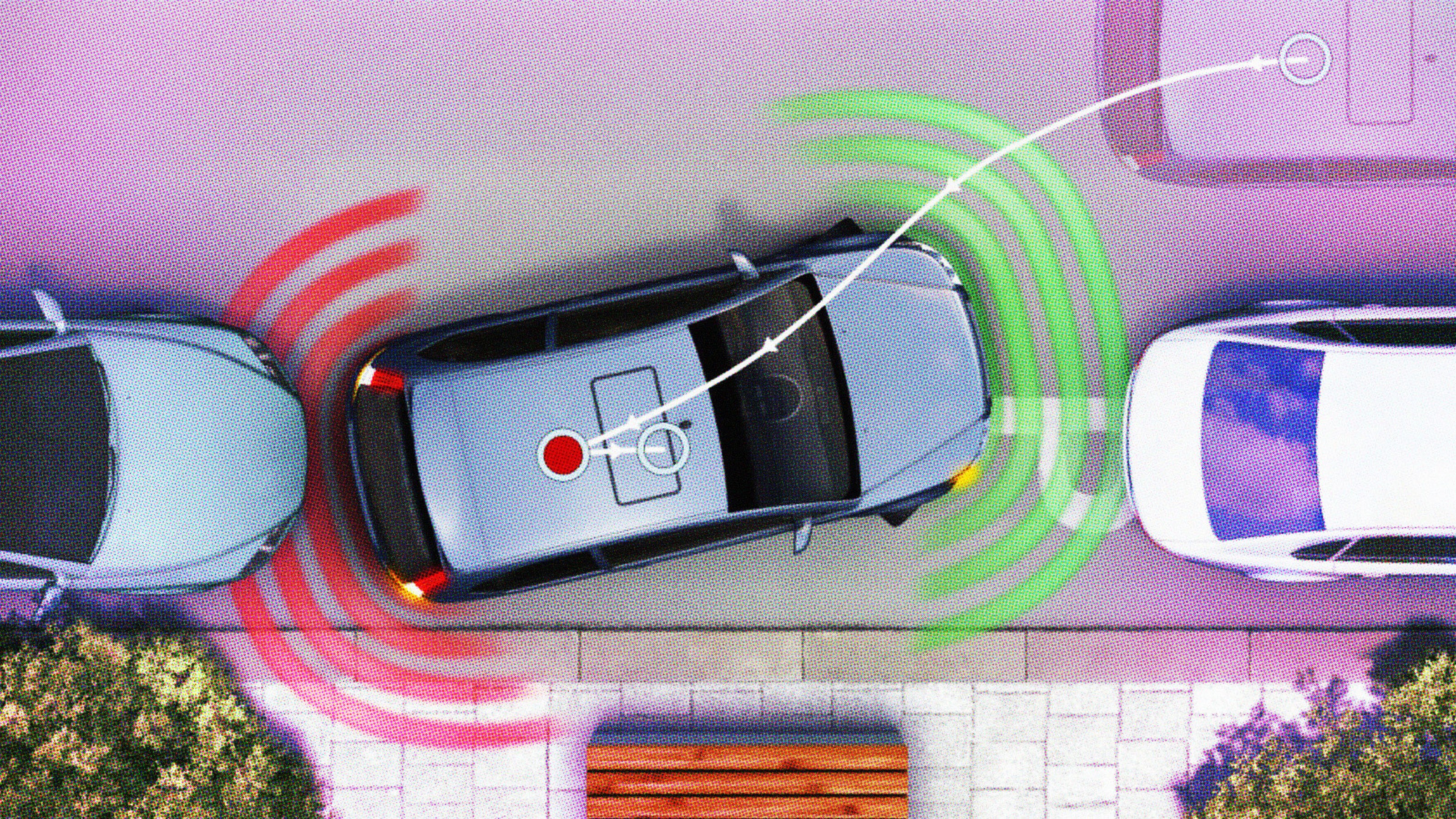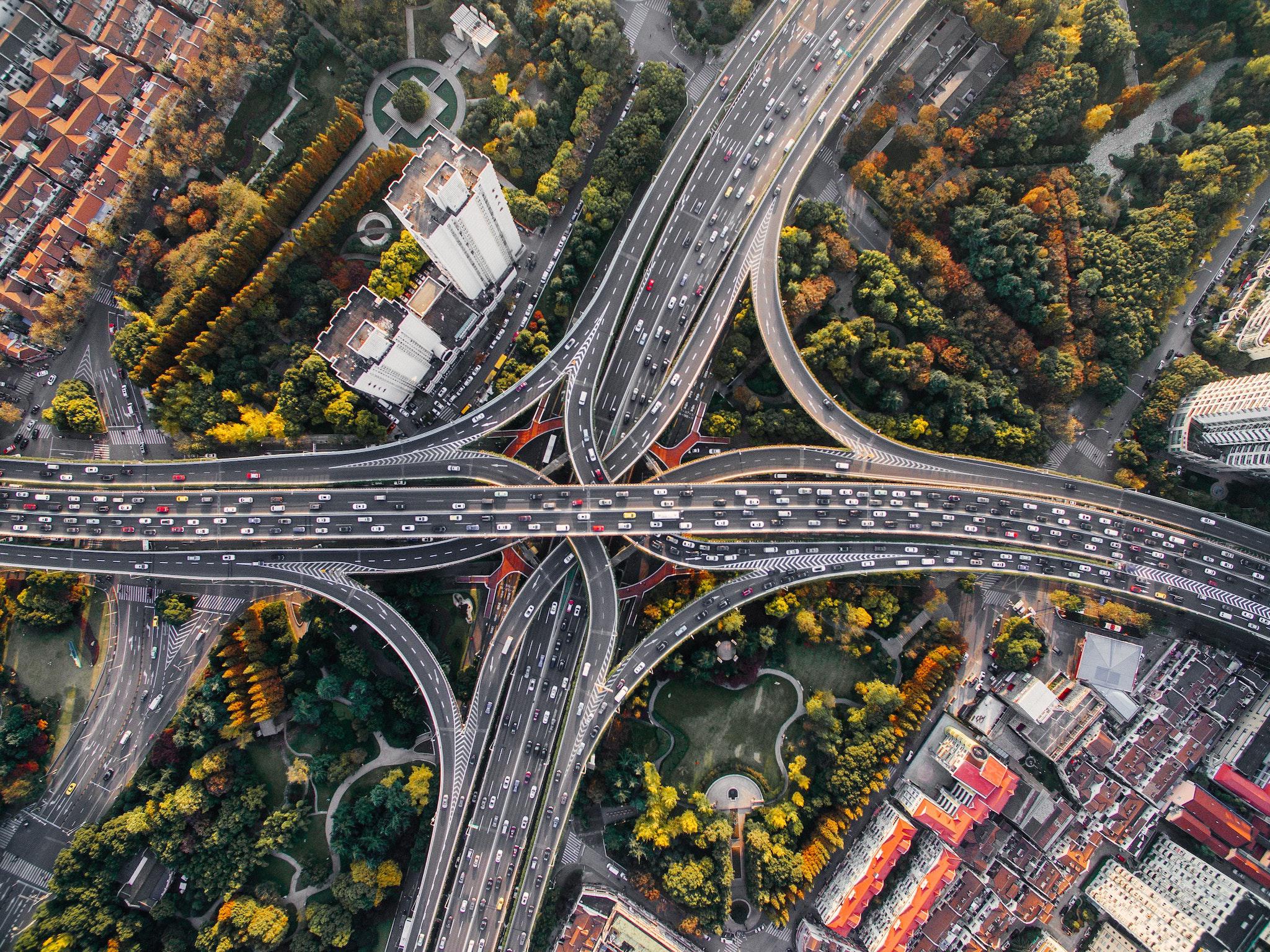Will the Textalyzer Help Curb Distracted Driving?

Los Angeles residents love to talk about driving routes. Just as everything takes ten minutes on a New York City subway, each destination is only twenty minutes by car here, even if in both cases the reality is anything but. Sadly, reality is taken into less and less consideration by LA’s millions of drivers.
Last week I was heading north on the 405, the ten-lane behemoth that cuts north to south through the county. After a stint of traffic we’re back up to seventy, only the women in front of me is cruising at thirty—in the left lane. As I pass I notice the phone, and her attention, in her right hand.
This is hardly a Southern California problem. The numbers are staggering: 430,000 people are now injured yearly while ten-percent of all traffic fatalities occur due to distracted driving. During interviews with drivers who have injured or killed others—this short Werner Herzog documentary features plenty—everyone claims the same thing: I thought I could do it.
But we can’t. Once our gaze heads to our phone, it takes an average of four seconds to readjust to the road, a lifetime on a highway. During that time your car could travel a hundred yards though, most likely, you were riding the brake, unconcerned about others around you.
In my four-and-a-half years living in this city, I’ve seen a grand total of two people pulled over for texting and driving. Of course, this is anecdotal, but given that five days a week I’m traveling north, south, and east to teach, the number of swerving cars and dazed drivers sitting at green lights is astounding, well above the number of drivers being pulled over. One would hope police take this seriously.
Enter the Textalyzer. One of the problems with correctly assessing how many accidents are caused by distracted driving is that statistics rely on people admitting they were doing it. The Texalyzer would allow law enforcement officers access to the drivers’ operating systems to uncover what, if anything, was happening during the crash. If all goes as planned, refusing to cough up your phone could result in a suspension of driving privileges, akin to Breathalyzer regulations. If legislation passes in New York, it would most likely be adopted elsewhere rather quickly.
Opponents have cited privacy issues. Developers promise the test would not reveal data, just whether or not the driver was multitasking on phone, text, or email. A Breathalyzer does not discriminate between wine, beer, or whiskey. What matters is being distracted, not what distracted you.
A few weeks ago I was driving through Beverly Hills when a woman was driving fifteen in a thirty. As expected, her phone was between her hands on the wheel, a bright blue light lighting her face in the darkness. What really saddened me was her five-year-old daughter in the passenger seat, who will grow up thinking this to be acceptable behavior. It’s boggling to consider a parent doing such a thing with their child in the car, but this was no rare case.
The anti-drinking and driving campaign was extremely successful because as a society we recognized the dangers of getting behind a wheel inebriated. Thankfully, those numbers have been declining for years. Yet somehow we consider it socially acceptable to use our phones wherever and however we want. Perhaps we forgot the unspoken contract we share when driving. It’s not surprising, though it is deadly.
As much as we like to think the distance between our home and destination is all about us, it never has been. Other lives depend on us making the right decisions, and at the moment too many drivers are choosing wrong. Sadly, each will consider himself or herself immune to this plague until the moment they find out that no, they actually couldn’t handle it.
—
Image: Mark Ralston / Getty Images
Derek Beres is a Los-Angeles based author, music producer, and yoga/fitness instructor at Equinox Fitness. Stay in touch @derekberes.





